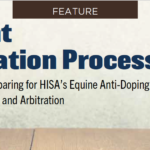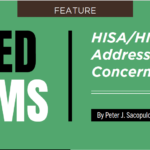The New Rules of Evidence: Litigating in the Cyber Age
Michael J. Sacopulos, JD
In most law schools around our country, second year students take “Evidence”. This is a technical class which teaches one rule and its exceptions after the next. What information is privileged and not, the hearsay rule and its dozen exceptions, relevant versus irrelevant testimony, and waivers all make up a body of law whose origins date back centuries to English common law. Rising above the trees to look at the forest, the general idea is to determine what information is fair and reliable to present to a jury. The thought goes that some information is simply too prejudicial or unreliable to be presented to a jury. At their core, the rules of evidence control information heard by jurors. Well, it seems that there are some new rules…
In the past several years one example after the next has emerged of jurors using social media and internet searches to “supplement” the information they are being provided at trial. Last year a New York trial court judge received word that a juror had conducted some independent research during the trial by performing “google” searches on the parties. Upon questioning, the juror admitted that he had “googled” the parties and gave the excuse that he was “curious.”
Apparently he wasn’t the only curious juror. The trial court judge went on to question the remaining jurors. Eight of his fellow jurors also admitted to conducting independent internet searches. That is nine (9) out of the twelve (12) jurors. The judge was forced to declare a mistrial. This is not an isolated incident. In another case, when a juror heard contested testimony relating to the drug Paxil, the juror conducted internet research. The juror then shared the results of the Paxil research with fellow jurors. In yet another case, a juror was uncertain whether a defendant was guilty or not. What did she do? She conducted a poll on her Facebook page. This also resulted in a mistrial.
The problem of juror misconduct by use of the internet has become so common that courts now issue jury instructions on the topic. Federal courts now have standard jury instructions stating that jurors are not to do independent internet research on the parties, witnesses or facts of the case. Many believe that such instructions are futile. In August 2011 a Fort Worth, Texas juror plead guilty to contempt of court after it was discovered that he attempted to “friend” the defendant on Facebook during the trial. The juror’s attorney summed up the situation by saying: “It is a reflection of the times. Most everyone has smartphones now. They can hop on at almost any time. And there’s a lot of downtime in jury duty, so what most people do is hop on their phone.”
The social media revolution has inflamed other aspects of the trial process. Attorneys now devote effort to reviewing the other party’s social media use. In Bass v. Miss Porter’s School, the plaintiff had been suspended for cheating on an exam. The school requested all Facebook pages and Twitter documents that related to not only the exam, but the plaintiff’s alleged teasing and taunting of others. Here the court found:
Facebook usage depicts a snapshot of the user’s relationships and state of mind at the time of the content’s posting. Therefore, relevance of the content of Plaintiff’s Facebook usage as to both liability and damages in this case is more than in the eye of the beholder than subject to strict legal demarcations… (No. 3:08 cv1807, 2009 WL 3724968, D. Conn. Oct. 27, 2009, Id at *1).
With that ruling, the plaintiff was forced to turn over 750 pages of her Facebook account.
In a 2010 case from Pennsylvania, a court when ruling to compel social media usage disclosure found:
Facebook, MySpace, and their ilk are social network computer sites people utilize to connect with friends and meet new people. That is, in fact, their purpose, and they do not bill themselves as anything else. Thus while it is conceivable that a person could use them as forums to divulge and seek advice on personal and private matters, it would be unrealistic to expect that such disclosures would be considered confidential (No. 113-2010 CD, 2010 WL 4403285 at *2).
Here the court ordered the plaintiff to produce his Facebook and MySpace user names and passwords and to preserve existing information and posts on these accounts.
These court rulings and others like them serve as a warning. Information that you post for friends or colleagues may well end up as a piece of evidence in a trial. A simple rant posting following an unpleasant appointment or difficult staff encounter reported in a Tweet could end up as a line of questioning in your deposition or trial. Social media sites have become a new frontier for lawyers to explore in litigation so be careful what you post.
The above discussion can be worrisome. Here are some tips on how to protect yourself:
Own your name as a domain name: Log onto websites like 1and1.com or godaddy.com and buy the domain name of your private and practice names. Domain names typically cost around $7.99 a year. It is a small price to pay if a patient or competitor of yours decides they want to own your cyber identity. It may also be wise to buy pejorative derivatives of your name; for example: drjoesmithsucks.com.
Electronically Monitor Your Online Reputation: This is as simple as going to Google Alerts and type in your name. Other firms, such as Medical Justice, offer a much more specialized search service. These services send you a note “as-it-happens” every time your name or your practice name is mentioned on the web. This allows you to react to any positive or negative comments in a timely manner.
Have your employees sign a social media policy: Defining what your employees can and cannot do both in the workplace and at home, needs to be spelled out. If you fire an employee for something they’ve said online, that needs to be spelled out in your own company’s policy or you could be subject to a wrongful termination suit. These policies have become standard for larger institutions and help properly set expectations as to how staff and employees will use the internet.
Separate your personal social media activities from your professional activities: Healthcare providers should maintain both personal and private social media accounts. If you are worried about having to log in and out of multiple accounts a day you can use programs like hootsuite.com or tweetdeck.com to manage your accounts. Having separate accounts keeps your personal and private lives separate. Friending patients may cross professional boundaries. There are also issues with HIPAA and the HITECH Act when communicating with your patients online so be careful. A common professional way for physicians to stay in touch with patients is to start a fan page. Search Fan Page on Facebook and they will provide you with step-by-step instructions to start one.
Attempt to encourage patients to review your practice online via rating sites: Physicians like yourself probably have hundreds if not thousands of patients but the truth is only a couple of them have taken time to review you online. The simple fact is the majority of your patients like you, but the few who don’t let their voices be heard by reviewing you on multiple rating sites. Those reviews could cast you in a negative light to potential patients. To brighten the scope of your image, find ways to encourage your patients to rate you online. More accurate reviews will help marginalize negative outliers.
All of this indicates that an individual’s online reputation may have a major impact upon litigation that the individual is engaged in. In a very real sense, a defendant’s online reputation can become a major witness in his or her trial. While many physicians view the importance of their online reputation in terms of practice development and patient volume, they should be concerned for a whole other reason. Anyone engaged in litigation would be wise to begin taking action to address his or her online reputation.
Michael J. Sacopulos is a Partner with Sacopulos, Johnson & Sacopulos, in Terre Haute, Indiana. His core expertise is in medical malpractice defense and third party payment disputes. Sacopulos may be reached at mike_sacopulos@sacopulos.com.
This work is copyrighted and is the exclusive property of the authors. It may only be used, in whole or in part, with the express written permission of the authors.




